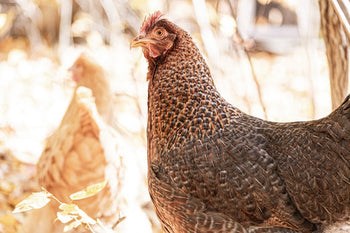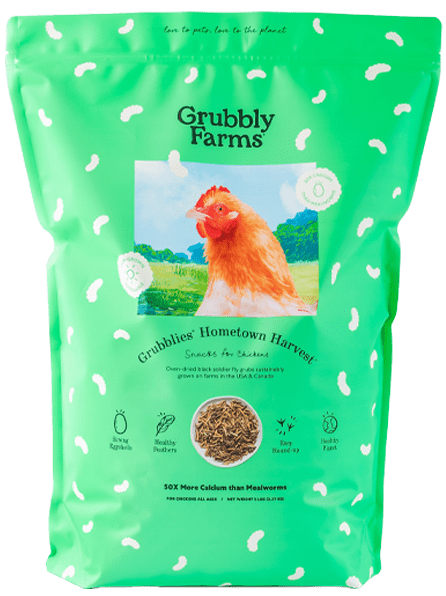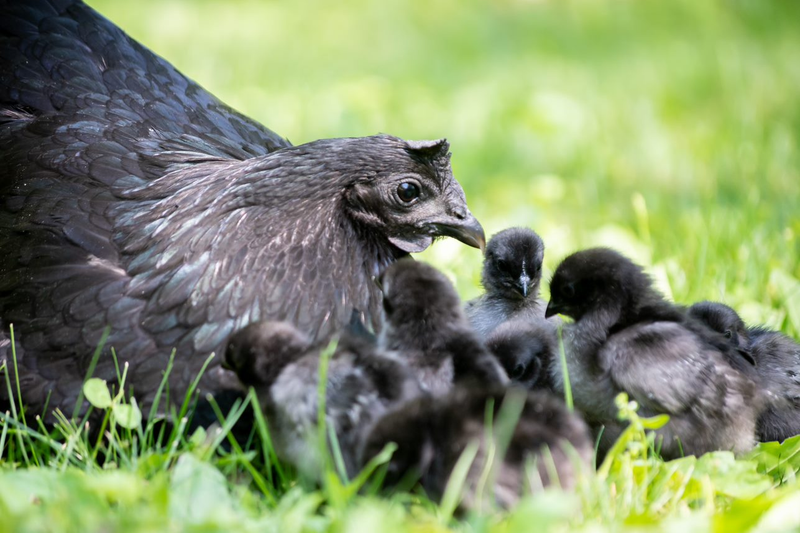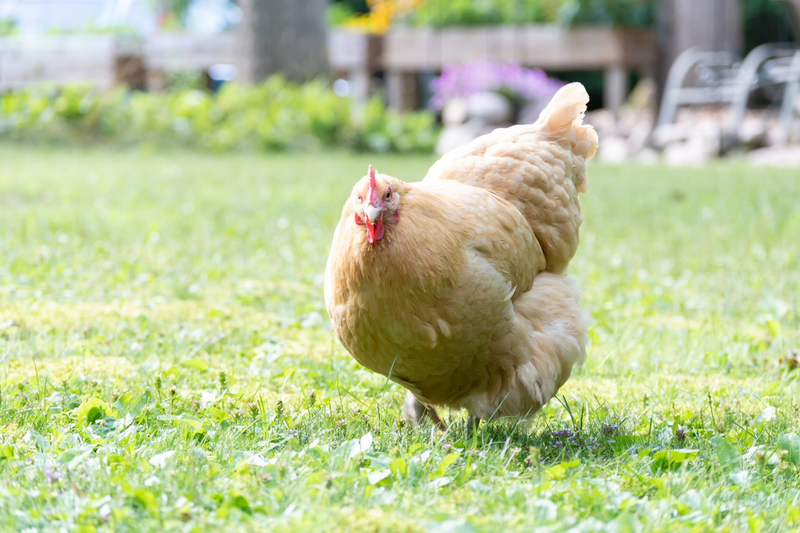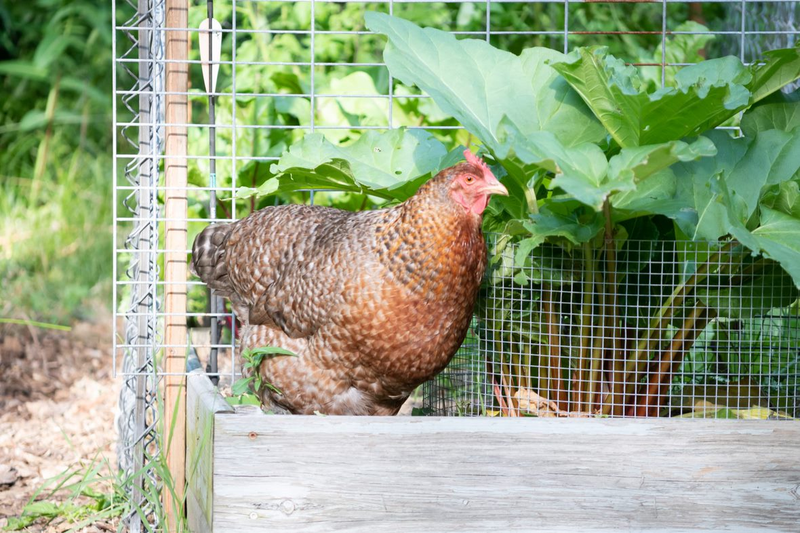Having a flock of backyard chickens can bring many joys and challenges! Going out to collect those fresh eggs, cuddling with a sweet hen, or watching the ladies scramble around the yard in search of yummy snacks is just some of the excitement of having a backyard flock.
However, there is a good level of prep work, research, and dedication that goes into raising a healthy flock. You’re likely to make a few mistakes along the way. Learning about some of the common mishaps can help minimize the number of challenges you encounter when keeping your backyard flock safe, healthy, and happy!
1. Overlooking Local Regulations
Whether you live in a rural or suburban area, it is always a good idea to check into local regulations about raising a flock of chickens. Some cities or suburbs don’t allow backyard chickens, or they may have certain restrictions and guidelines you must obey. The last thing you want is to fall in love with your backyard flock only to learn you must downsize or get rid of them altogether!
You can do a quick Google search by typing in these keywords, ‘domestic chicken codes (your city)’. This should bring up pages from your local city ordinances that highlight any rules or regulations pertaining to backyard flocks. You can also check with your local zoning authority for more information.
If you can raise chickens where you live, you should investigate which permits you’ll need to get. You may need to secure a building permit to put a chicken coop on your property, or a livestock permit or annual fee to keep your chickens. Inquire about any restrictions that might apply to raising a backyard flock of chickens, which can include:
- Restricted coop size
- No roosters
- Flock size restrictions

2. Neglecting Proper Planning
Before you get your backyard flock, take the time to develop a thorough plan for your coop, fencing, and chicken breeds. Without a plan, you may find yourself with too many chickens in too small of a coop. Or, you may have a flock of heat-tolerant breeds, but your region experiences extreme winter weather.
Here are some important aspects to plan before you get your first flock:
The Coop Plan- Chickens need protection from the wind, cold, rain, snow and other weather conditions. A coop should also provide your flock with protection from predators and access to everything they need to survive daily, such as food and water. The coop should have absorbent litter that is easy to clean. It also needs to have plenty of floor space, the proper number of roosts, and the proper number of nesting boxes.
Planning the coop starts with knowing how many chickens you will have in your flock. Always plan on more space for future flock additions. If you need tips on making a chicken coop plan, check out our article on Building the Perfect Chicken Coop!
Proper Fencing- Along with the chicken coop, you should also plan on attaching a run or enclosure. This feature will allow your flock to be outside but still stay confined to the area in which you want them. The run or enclosure should be made from sturdy, predator-proof fencing. You may also consider having the enclosure covered to provide protection from aerial predators and precipitation. This way, your flock can get outside no matter the weather.
Choosing Chicken Breeds- You will also need to carefully consider what chicken breeds you want. With hundreds of breeds to choose from, picking out the right ones for your backyard may seem easy. However, there are a few key considerations that will help weed out what breeds wouldn’t be a good fit. Here are some important factors to keep in mind:
- Size (standard, large, bantam, etc.)
- Personality
- Purpose (eggs, meat, exhibition, dual-purpose, etc.)
- Cold hardy vs heat tolerant
- Broodiness
- Breed type (heritage, rare, hybrid, etc.)

3. Ignoring Coop Design and Maintenance
A poorly designed coop can make it difficult to keep clean and lead to health issues in your flock. Here are some factors to consider when properly designing your chicken coop:
Ventilation- A coop with poor ventilation won’t allow for proper air exchange. This can lead to ammonia fumes building up in the coop, which may cause respiratory illness in your flock. However, you also don’t want your coop to be drafty. Good ventilation will allow for old, stale air to be replaced with fresh, oxygen-laden air without causing drafts at ground level where the chickens are.
Nesting Boxes- Having the proper number of nesting boxes in your coop is essential for keeping your laying hens happy. Not enough nesting boxes can lead to cracked eggs or hens laying their eggs in other random places around the coop. Allow at least 1 nesting box for every 4-5 laying hens you will be keeping. The nests should also not be too high or low. Hens prefer nesting boxes that are raised off the ground but that are lower than the roosts where they sleep at night. Make sure the nests are the proper size for the birds you are raising and that the nests are lined with soft nesting litter. Here are some nesting box size guidelines:
- Nesting Boxes (standard chicken breeds): 12” x 12” x 18”
- Nesting Boxes (heavy chicken breeds): 14” x 14” x 20”
Ease of Cleaning- A properly designed coop will make litter and droppings removal simple and efficient. Design your chicken coop so that you can easily access the entire floor space for cleaning out dirty litter. If your flock is big enough, have a chicken coop that will allow you to stand up and move around. If you are keeping a small flock, make sure you can still easily access the interior of the coop for cleaning purposes.
Size- Design your coop so you have enough space for all the birds in your flock. If you are not restricted by flock size restrictions, then always plan your coop larger than you think you will need. For tips on how much space to allow for in the chicken coop, check out our post: How Big of a Chicken Coop do I Need?

4. Underestimating Predator Protection
Just about every predator you can think of (and some you can’t) has chicken on the menu. Keeping your flock safe may sound challenging, but not when you have a properly predator-proof chicken coop and run. Not taking the time to secure the chicken coop and run can lead to heartbreaking results. Chicken predators are often more powerful and resourceful than we give them credit for, and will dig, climb, or sneak through small openings to get a chicken snack.
Here are some ways to keep your flock safe:
- Tricky latches- have multi-step latches on the doors of the coop
- Covered enclosure- this will protect your flock from aerial predators when they are outside
- Fencing apron- bury the enclosure fencing in an apron-like fashion to deter digging predators
- Raised coop- having the coop raised slightly off the ground (with solid flooring) will help prevent rodents and snakes from easily accessing the interior of the coop
- Hardwire windows w/ screws- put hardwire over the chicken coop windows and fasten the hardwire with screws (not staples)
- Sturdy fencing- avoid chicken wire fencing that can be twisted, bent, and broken by predators
- Automatic doors- doors that automatically close at dusk and open at dawn can help keep your flock safe at night
Aside from predator-proofing the coop and run, there are two other key factors in keeping your flock safe. First, train your flock to go into their coop every evening to roost. Second, securely close all the coop doors and windows each night. These two measures can keep your flock safe from predators at dusk, during the night, and at dawn when they are the most active.

5. Overcrowding the Flock
One of the biggest mistakes to avoid when starting your first backyard flock is not planning enough space in your chicken coop. Chickens need their personal space, and when they feel crowded, it can lead to bad behavior. Overcrowding the chicken coop can lead to...
- Uncleanliness- the coop gets dirtier faster which can harbor disease and parasites
- Ammonia- too much poop in a small space leads to a buildup of ammonia
- Stress- chickens may start to bully each other or peck each other’s feathers when they feel stressed
- Decrease in Laying- when hens are stressed they will stop laying eggs
Whether you are building or buying a coop, make sure it has enough space for your chickens and additional room in case the flock expands in the future. Here are some general space guidelines to follow to help prevent overcrowding in the chicken coop:
- Standard Breed Chickens: 4 square feet of coop space per bird; 8 square feet of run space per bird
- Standard Heavy Breed Chickens: 8 square feet of coop space per bird; 15 square feet of run space per bird
- Bantams: 2 square feet of coop space, 5 square feet of run space
- Roosts (standard chickens breeds): 8” per chicken 
- Roosts (heavy chicken breeds): 12” per chicken

6. Poor Nutrition and Feeding Habits
Chickens need a balanced diet to stay healthy and productive. Inadequate nutrition can lead to dietary deficiencies and illness in your flock. Here are the key components of a balanced diet for chickens, listed by order of importance:
- Layer feed- contains all the essential nutrients chickens need.
- Supplemental calcium- laying hens need it to create strong eggshells.
- Supplemental grit- helps the digestive system break down food.
- Foraging- free-range chickens can supplement their diet with natural forage.
- Healthy snacks- leafy greens and dried grubs add nutritional value to a chicken’s diet.
Make sure the feed you give your flock is not old, stale, or moldy. Feed loses its nutritional quality as it ages, so try to only buy as much as your flock will consume over 3-4 weeks.
Another essential element of a balanced diet for chickens is fresh, clean water. Make sure your flock always has access to fresh water. Clean your waterer regularly so that debris and droppings do not contaminate it. During the winter, make sure the water stays unfrozen.

7. Neglecting Health Checks
Giving your flock a regular inspection for signs of illness or disease is a chore that you might overlook. However, regular health checks are extremely helpful for raising a healthy flock. Poultry diseases can spread rapidly, so isolating sick birds as soon as possible is important for controlling an outbreak. Catching symptoms early on also increases the chances that the bird can recover from its ailment.
Chickens conceal their ailments until the condition gets severe. This is a survival instinct that prevents other flock members from bullying a pecking at the ailing bird. Doing a thorough and intentional health check can help you identify the early behaviors and symptoms of an ailing bird. Make weekly health observations of your flock and do a monthly head-toe health check on each bird.
Here are some common signs and symptoms to look for when you are monitoring your flock:
- Ruffled feathers & hunched posture
- Pale, shrunken comb & wattles
- Lethargy & inactivity
- Diarrhea
- Coughing, sneezing, & gurgling
Make sure you take immediate action when you identify an ailing chicken. Try to diagnose the ailment as soon as possible and consult an avian vet or expert for advice on treating them.

8. Skipping Biosecurity Practices
Improper biosecurity can allow parasites, viruses, bacteria, and harmful microbes to spread and contaminate your flock. Pathogens can be spread through the air or on manure, equipment, tires, clothing, and by wild birds.
Here are some good biosecurity practices that can help keep your flock safe and minimize the spread of disease:
- Change your shoes and clothing when visiting other flocks
- Don't share equipment with other chicken raisers
- Quarantine new flock additions
When adding new chickens to your flock, you will want to quarantine the new birds for at least 2-3 weeks before integrating them. A quarantine period allows you to monitor the new birds for signs of disease or parasites that they could spread to your flock. Care for your flock before caring for the quarantined birds and allow no direct contact between them. If the new birds appear healthy after 2-3 weeks of quarantine, you are safe to begin the integration process.
9. Not Providing Enough Enrichment
Chickens are social and intelligent creatures. Not providing enough enrichment for your backyard flock can result in boredom which leads to bad behavior. Watch for these signs that your flock needs more enrichment:
- Bullying
- Egg eating
- Feather pecking
- Stress
- Overeating
Thankfully, entertaining chickens is easy! Encourage your flock to engage in natural behaviors or explore enrichment activities to keep them mentally and physically stimulated. You can implement enrichment strategies in the chicken run so that your flock doesn’t get bored even when they must stay cooped up. Here are some enrichment ideas:
- Dust Baths- dust bathing is a natural behavior that helps with external parasite control and feather health
- Toys- food pinatas, treat garlands, mirrors, bells, etc...
- Varied Perches- stumps, logs, ramps, tunnels, branches, swings, etc...
- Stimulate Foraging- scratch grains, straw, dried grubs, etc...
- Free-Ranging- allow your flock free roam of your yard and they will entertain both themselves and you!
10. Failing to Learn Chicken Body Language
Failing to learn chicken body language can leave you confused and worried about your backyard flock. If you don’t know what their typical behaviors are, you won’t be able to identify when something is wrong, or you might panic over something that is totally normal. Learning chicken body language can help you identify a healthy chicken, know when a rooster will be aggressive, and understand the activities that your flock is engaging in daily.
Here are some common chicken activities that you should become familiar with:
- Dust bathing- chickens will roll around in the dirt to rid themselves of external parasites
- Sunbathing- chickens will lay in the direct sunlight with their wings outstretched as another method of controlling external parasites
- Preening- chickens will use their beak to oil, reposition, and maintain their feathers
- Mating- a rooster will mount a hen’s back when they are mating
- Courting- a rooster will drop his wing and dance around a hen when he is courting her
- Tidbitting- a rooster will do this to attract hens and a mother hen will do this to teach her chicks what is safe to eat
- Wing flapping- this can be a sign of happiness, or it can be a warning sign from a protective rooster
- Tail wagging- this is another sign of happiness
- Distress- a chicken who is distressed will engage in loud squawking and have an alert posture
- Aggression- a chicken who is aggressive will raise its hackle feather, stare directly at you, and may even bluff charge you
- Egg laying- hens will sing an egg song before and after they lay an egg
- Squatting- a submissive behavior shown by hens who are willing to be mated by a rooster or by young hens who are going to start laying soon
- Broodiness- when a hen is broody she wants to incubate eggs to hatch chicks; she will never leave the nesting box and will hiss, scream, and peck at you

Conclusion
Now that you know about these common chicken keeping mistakes, you can be sure to avoid them when raising your backyard flock! Make sure you start with a plan on how you are going to house and care for your flock, give them an adequate coop, and ensure they eat a balanced diet. Following these tips will make you a better chicken keeper and help you have a successful chicken-raising experience!





